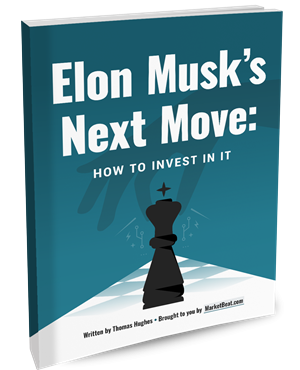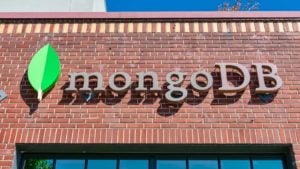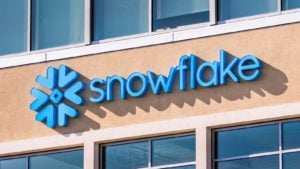Month: September 2023
Low-code platform Retool makes it easier to bring AI smarts to business apps – Yahoo News

MMS • RSS
Retool started out as a platform for building line-of-business apps, but over the last few years, the well-funded startup added a number of back-end services as well, including, most recently, a workflow automation service. Today, it’s launching a number of new tools that will help its users build AI-based apps, including a hosted vector store that will allow them to more easily add context to large language models (LLMs).
As Retool CEO and co-founder David Hsu told me, a lot of his customers are already looking at how to use AI in their apps, but for most enterprises, the value in using these tools is in being able to reason over their internal data. They have the option to copy and paste data into a query to add context, but that’s limited and can quickly become rather costly. While few businesses have the resources to train their own models, they could likely fine-tune existing models with a reasonable amount of data. Hsu, however, argues that fine-tuning a model with all of a company’s production data isn’t really feasible either — and that the data would soon be out of date.
Image Credits: Retool
Currently, the state-of-the-art for bringing custom data into LLMs is to vectorize the data to make it easily accessible for these models. That’s why you are seeing the likes of Google, Microsoft, DataStax and MongoDB all launching their vector search services in recent months.
In Hsu’s view, there isn’t a lot that differentiates these offerings — they are all pretty similar in their capabilities. “I think the problem actually is not which vector database you choose — whether it’s MongoDB or whatever else. Instead, it’s how do you actually get data into this vectorized database and how do you keep it up to date. How do you sync it with Salesforce, for example, so you could ask your LLM questions and actually get it to pull in fresh data from Salesforce.” That, he argues, is where Retool’s customers are facing the largest obstacles in building custom AI applications for their business use cases right now, so it’s no surprise then that the company is launching Retool Vectors today, a hosted vector storage service (using the open source pgvector extension for Postgres at its core).
Image Credits: Retool
Internally, Hsu explained, Retool had tested the use of Intercom’s GPT-powered AI chatbot to handle some customer service interactions. That bot, which already had access to a lot of business context, was able to close about 20% of tickets. But then, using a vector database coupled to an LLM that included all of Retool’s Salesforce data, support data and more, its custom bot’s close rate went up to almost 60%. The company also vectorized all of its transcripts from sales calls and then put OpenAI’s API on top of it to query them.
One nifty feature here is that Retool is then also using its recently launched Workflow service to keep a business’ production database and the vectorized database in sync, ensuring that the models have access to up-to-date information.
Image Credits: Retool
In addition to the vector storage service, Retool also launched a number of AI-based actions for common use cases like text summarization and classification, image generation and more. Retool partnered with OpenAI for these features, which includes integrations into Retool Workflows.
“We’re incredibly excited to partner with Retool to empower more companies to leverage generative AI across their business,” said Brad Lightcap, chief operating officer at OpenAI. “From reducing manual work to sharing more knowledge to adding new customer-facing capabilities, we believe tools like Retool help businesses put AI into production much faster without compromising safety.”

MMS • RSS

A whale with a lot of money to spend has taken a noticeably bearish stance on MongoDB.
Looking at options history for MongoDB MDB we detected 11 strange trades.
If we consider the specifics of each trade, it is accurate to state that 45% of the investors opened trades with bullish expectations and 54% with bearish.
From the overall spotted trades, 6 are puts, for a total amount of $500,300 and 5, calls, for a total amount of $205,913.
What’s The Price Target?
Taking into account the Volume and Open Interest on these contracts, it appears that whales have been targeting a price range from $300.0 to $580.0 for MongoDB over the last 3 months.
Volume & Open Interest Development
In terms of liquidity and interest, the mean open interest for MongoDB options trades today is 232.3 with a total volume of 227.00.
In the following chart, we are able to follow the development of volume and open interest of call and put options for MongoDB’s big money trades within a strike price range of $300.0 to $580.0 over the last 30 days.
MongoDB Option Volume And Open Interest Over Last 30 Days
Biggest Options Spotted:
| Symbol | PUT/CALL | Trade Type | Sentiment | Exp. Date | Strike Price | Total Trade Price | Open Interest | Volume |
|---|---|---|---|---|---|---|---|---|
| MDB | PUT | TRADE | NEUTRAL | 02/16/24 | $580.00 | $187.3K | 0 | 0 |
| MDB | PUT | SWEEP | NEUTRAL | 09/15/23 | $440.00 | $182.2K | 29 | 19 |
| MDB | CALL | SWEEP | NEUTRAL | 01/19/24 | $300.00 | $59.5K | 1.4K | 62 |
| MDB | CALL | TRADE | BULLISH | 11/17/23 | $380.00 | $54.4K | 122 | 21 |
| MDB | CALL | SWEEP | BULLISH | 01/19/24 | $300.00 | $39.7K | 1.4K | 40 |
Where Is MongoDB Standing Right Now?
- With a volume of 1,071,241, the price of MDB is down -1.23% at $377.54.
- RSI indicators hint that the underlying stock may be approaching overbought.
- Next earnings are expected to be released in 89 days.
What The Experts Say On MongoDB:
- Morgan Stanley has decided to maintain their Overweight rating on MongoDB, which currently sits at a price target of $480.
- Truist Securities has decided to maintain their Buy rating on MongoDB, which currently sits at a price target of $430.
- Piper Sandler has decided to maintain their Overweight rating on MongoDB, which currently sits at a price target of $425.
- Stifel has decided to maintain their Buy rating on MongoDB, which currently sits at a price target of $450.
- RBC Capital downgraded its action to Outperform with a price target of $445
Options are a riskier asset compared to just trading the stock, but they have higher profit potential. Serious options traders manage this risk by educating themselves daily, scaling in and out of trades, following more than one indicator, and following the markets closely.
If you want to stay updated on the latest options trades for MongoDB, Benzinga Pro gives you real-time options trades alerts.

MMS • Sergio De Simone

Ephemeral workspaces allows their users to set timeouts to automatically destroy unused resources, reducing infrastructure costs and the effort required for manual resource clean-up. Ephemeral workspaces are now available in public beta on Terraform Cloud Plus.
HashiCorp first talked about ephemeral workspaces at HashiDays 2023.
Ephemeral workspaces work with existing workspace permissions and have a simple workflow. Just set a date when you would like the workspace to be deprovisioned. Then, once that date is reached, Terraform will automatically run a destroy plan and apply it to destroy your managed resources.
According to HashiCorp, ephemeral workspaces can help reduce costs, increase efficiency, and improve security. Cost savings are made possible both by reducing infrastructure costs and reducing the time IT teams spend manually cleaning up unused resources. Administrators can either use the API or a Web user interface to set timeouts for workspaces that should be automatically cleaned-up. Finally, security is improved because by cleaning up unused resources, the overall available attack surface decreases.
As mentioned, auto-destroying workspaces can be managed though Terraform Cloud Web UI, which allows to set a date and time as well as to access diagnostic logs in case auto-destroying a workspace fails. Terraform Cloud is also able to send notification both before and after destroying a resource.
Workspaces are a mechanism to create multiple copies of a deployment that you can create or destroy as required. Using multiple workspaces, you can manage different instances for different environments. While workspaces are part of the free Terraform Cloud, ephemeral workspaces are a premium feature.
A few weeks ago, HashiCorp announced a change in its source code licensing, moving from Mozilla Public License v2.0 (MPL 2.0) to the Business Source License v1.1 (BSL 1.1) on all future releases of HashiCorp products. While HashiCorp argued they are in alignment with other companies that have recently restricted commercial use of their software in competitive products, the decision sparked rather negative reactions from the community.
Independent Advisor Alliance Makes New $285000 Investment in MongoDB, Inc. (NASDAQ:MDB)

MMS • RSS
 Independent Advisor Alliance bought a new position in shares of MongoDB, Inc. (NASDAQ:MDB – Free Report) in the first quarter, according to the company in its most recent filing with the Securities & Exchange Commission. The firm bought 1,224 shares of the company’s stock, valued at approximately $285,000.
Independent Advisor Alliance bought a new position in shares of MongoDB, Inc. (NASDAQ:MDB – Free Report) in the first quarter, according to the company in its most recent filing with the Securities & Exchange Commission. The firm bought 1,224 shares of the company’s stock, valued at approximately $285,000.
A number of other institutional investors and hedge funds have also recently added to or reduced their stakes in MDB. Cherry Creek Investment Advisors Inc. lifted its holdings in shares of MongoDB by 1.5% in the fourth quarter. Cherry Creek Investment Advisors Inc. now owns 3,283 shares of the company’s stock worth $646,000 after buying an additional 50 shares in the last quarter. CWM LLC lifted its holdings in shares of MongoDB by 2.4% in the first quarter. CWM LLC now owns 2,235 shares of the company’s stock worth $521,000 after buying an additional 52 shares in the last quarter. Cetera Advisor Networks LLC lifted its holdings in shares of MongoDB by 7.4% in the second quarter. Cetera Advisor Networks LLC now owns 860 shares of the company’s stock worth $223,000 after buying an additional 59 shares in the last quarter. First Republic Investment Management Inc. lifted its holdings in shares of MongoDB by 1.0% in the fourth quarter. First Republic Investment Management Inc. now owns 6,406 shares of the company’s stock worth $1,261,000 after buying an additional 61 shares in the last quarter. Finally, New York Life Investment Management LLC lifted its holdings in shares of MongoDB by 5.5% in the fourth quarter. New York Life Investment Management LLC now owns 1,358 shares of the company’s stock worth $267,000 after buying an additional 71 shares in the last quarter. Institutional investors own 88.89% of the company’s stock.
Analyst Ratings Changes
MDB has been the topic of a number of recent analyst reports. 58.com reaffirmed a “maintains” rating on shares of MongoDB in a research note on Monday, June 26th. Robert W. Baird raised their target price on shares of MongoDB from $390.00 to $430.00 in a research note on Friday, June 23rd. UBS Group raised their target price on shares of MongoDB from $425.00 to $465.00 and gave the company a “buy” rating in a research note on Friday, September 1st. JMP Securities raised their target price on shares of MongoDB from $425.00 to $440.00 and gave the company a “market outperform” rating in a research note on Friday, September 1st. Finally, Truist Financial lifted their price target on shares of MongoDB from $420.00 to $430.00 and gave the stock a “buy” rating in a research note on Friday, September 1st. One research analyst has rated the stock with a sell rating, three have given a hold rating and twenty-one have given a buy rating to the company’s stock. According to MarketBeat.com, MongoDB has an average rating of “Moderate Buy” and an average target price of $418.08.
Read Our Latest Stock Analysis on MDB
Insider Transactions at MongoDB
In other news, Director Dwight A. Merriman sold 6,000 shares of the company’s stock in a transaction dated Tuesday, September 5th. The shares were sold at an average price of $389.50, for a total value of $2,337,000.00. Following the sale, the director now directly owns 1,201,159 shares of the company’s stock, valued at approximately $467,851,430.50. The transaction was disclosed in a legal filing with the Securities & Exchange Commission, which can be accessed through this link. In related news, CEO Dev Ittycheria sold 50,000 shares of the company’s stock in a transaction dated Wednesday, July 5th. The shares were sold at an average price of $407.07, for a total value of $20,353,500.00. Following the transaction, the chief executive officer now owns 218,085 shares in the company, valued at approximately $88,775,860.95. The sale was disclosed in a document filed with the SEC, which is accessible through the SEC website. Also, Director Dwight A. Merriman sold 6,000 shares of the company’s stock in a transaction dated Tuesday, September 5th. The stock was sold at an average price of $389.50, for a total transaction of $2,337,000.00. Following the completion of the transaction, the director now owns 1,201,159 shares in the company, valued at approximately $467,851,430.50. The disclosure for this sale can be found here. Insiders have sold 83,551 shares of company stock valued at $33,875,952 in the last three months. 4.80% of the stock is currently owned by company insiders.
MongoDB Stock Performance
Shares of MDB stock opened at $382.26 on Thursday. The company’s fifty day moving average price is $390.04 and its 200-day moving average price is $308.14. The company has a debt-to-equity ratio of 1.29, a quick ratio of 4.19 and a current ratio of 4.48. MongoDB, Inc. has a 12 month low of $135.15 and a 12 month high of $439.00.
MongoDB Profile
MongoDB, Inc provides general purpose database platform worldwide. The company offers MongoDB Atlas, a hosted multi-cloud database-as-a-service solution; MongoDB Enterprise Advanced, a commercial database server for enterprise customers to run in the cloud, on-premise, or in a hybrid environment; and Community Server, a free-to-download version of its database, which includes the functionality that developers need to get started with MongoDB.
Featured Articles
Want to see what other hedge funds are holding MDB? Visit HoldingsChannel.com to get the latest 13F filings and insider trades for MongoDB, Inc. (NASDAQ:MDB – Free Report).
This instant news alert was generated by narrative science technology and financial data from MarketBeat in order to provide readers with the fastest and most accurate reporting. This story was reviewed by MarketBeat’s editorial team prior to publication. Please send any questions or comments about this story to contact@marketbeat.com.
Before you consider MongoDB, you’ll want to hear this.
MarketBeat keeps track of Wall Street’s top-rated and best performing research analysts and the stocks they recommend to their clients on a daily basis. MarketBeat has identified the five stocks that top analysts are quietly whispering to their clients to buy now before the broader market catches on… and MongoDB wasn’t on the list.
While MongoDB currently has a “Moderate Buy” rating among analysts, top-rated analysts believe these five stocks are better buys.

Wondering when you’ll finally be able to invest in SpaceX, StarLink or The Boring Company? Click the link below to learn when Elon Musk will let these companies finally IPO.

MMS • RSS
 MongoDB, Inc. (NASDAQ:MDB – Get Free Report) saw some unusual options trading on Wednesday. Stock traders acquired 36,130 call options on the stock. This is an increase of 2,077% compared to the typical volume of 1,660 call options.
MongoDB, Inc. (NASDAQ:MDB – Get Free Report) saw some unusual options trading on Wednesday. Stock traders acquired 36,130 call options on the stock. This is an increase of 2,077% compared to the typical volume of 1,660 call options.
MongoDB Stock Down 3.0 %
MongoDB stock opened at $382.26 on Thursday. The company has a debt-to-equity ratio of 1.44, a quick ratio of 4.19 and a current ratio of 4.19. The firm has a market capitalization of $26.98 billion, a price-to-earnings ratio of -110.48 and a beta of 1.11. MongoDB has a fifty-two week low of $135.15 and a fifty-two week high of $439.00. The stock’s fifty day moving average is $390.04 and its two-hundred day moving average is $308.14.
Wall Street Analysts Forecast Growth
Several research firms recently weighed in on MDB. Needham & Company LLC boosted their target price on MongoDB from $430.00 to $445.00 and gave the stock a “buy” rating in a research note on Friday, September 1st. Truist Financial boosted their price objective on MongoDB from $420.00 to $430.00 and gave the company a “buy” rating in a research note on Friday, September 1st. William Blair reiterated an “outperform” rating on shares of MongoDB in a research note on Friday, June 2nd. UBS Group boosted their price objective on MongoDB from $425.00 to $465.00 and gave the company a “buy” rating in a research note on Friday, September 1st. Finally, KeyCorp boosted their price objective on MongoDB from $372.00 to $462.00 and gave the company an “overweight” rating in a research note on Friday, July 21st. One analyst has rated the stock with a sell rating, three have issued a hold rating and twenty-one have given a buy rating to the company’s stock. According to MarketBeat, MongoDB currently has an average rating of “Moderate Buy” and an average target price of $418.08.
Read Our Latest Analysis on MongoDB
Insider Buying and Selling at MongoDB
In other MongoDB news, Director Dwight A. Merriman sold 1,000 shares of MongoDB stock in a transaction dated Tuesday, July 18th. The stock was sold at an average price of $420.00, for a total value of $420,000.00. Following the completion of the transaction, the director now directly owns 1,213,159 shares of the company’s stock, valued at approximately $509,526,780. The transaction was disclosed in a filing with the SEC, which is accessible through this hyperlink. In other MongoDB news, Director Dwight A. Merriman sold 1,000 shares of MongoDB stock in a transaction dated Tuesday, July 18th. The stock was sold at an average price of $420.00, for a total value of $420,000.00. Following the completion of the transaction, the director now directly owns 1,213,159 shares of the company’s stock, valued at approximately $509,526,780. The transaction was disclosed in a filing with the SEC, which is accessible through this hyperlink. Also, CAO Thomas Bull sold 516 shares of MongoDB stock in a transaction dated Monday, July 3rd. The shares were sold at an average price of $406.78, for a total value of $209,898.48. Following the completion of the transaction, the chief accounting officer now owns 17,190 shares of the company’s stock, valued at approximately $6,992,548.20. The disclosure for this sale can be found here. Insiders sold a total of 83,551 shares of company stock valued at $33,875,952 in the last three months. 4.80% of the stock is owned by corporate insiders.
Institutional Trading of MongoDB
Large investors have recently bought and sold shares of the company. Alamar Capital Management LLC lifted its position in shares of MongoDB by 2.4% in the second quarter. Alamar Capital Management LLC now owns 9,056 shares of the company’s stock valued at $3,722,000 after acquiring an additional 210 shares in the last quarter. Osaic Holdings Inc. lifted its position in shares of MongoDB by 47.9% in the second quarter. Osaic Holdings Inc. now owns 14,324 shares of the company’s stock valued at $5,876,000 after acquiring an additional 4,640 shares in the last quarter. Teachers Retirement System of The State of Kentucky lifted its position in shares of MongoDB by 365.9% in the second quarter. Teachers Retirement System of The State of Kentucky now owns 7,142 shares of the company’s stock valued at $2,935,000 after acquiring an additional 5,609 shares in the last quarter. Coppell Advisory Solutions LLC purchased a new stake in shares of MongoDB in the second quarter valued at $43,000. Finally, Alliancebernstein L.P. lifted its position in shares of MongoDB by 62.6% in the second quarter. Alliancebernstein L.P. now owns 264,330 shares of the company’s stock valued at $108,637,000 after acquiring an additional 101,804 shares in the last quarter. Institutional investors and hedge funds own 88.89% of the company’s stock.
MongoDB Company Profile
MongoDB, Inc provides general purpose database platform worldwide. The company offers MongoDB Atlas, a hosted multi-cloud database-as-a-service solution; MongoDB Enterprise Advanced, a commercial database server for enterprise customers to run in the cloud, on-premise, or in a hybrid environment; and Community Server, a free-to-download version of its database, which includes the functionality that developers need to get started with MongoDB.
See Also
Receive News & Ratings for MongoDB Daily – Enter your email address below to receive a concise daily summary of the latest news and analysts’ ratings for MongoDB and related companies with MarketBeat.com’s FREE daily email newsletter.

MMS • Andrew Hoblitzell

Google has announced that it is expanding its open-source support for Vertex AI, its machine learning platform, by adding support for Ray, an open-source unified compute framework. This move is aimed at efficiently scaling AI workloads and enhancing the productivity and operational efficiency of data science teams.
The announcement was made during Google Cloud Next, an annual conference where Google shares updates and advancements in its cloud-based services. “We believe that making AI helpful for everyone is the best way we’ll deliver on our mission in the next decade,” Google CEO Sundar Pichai said during a keynote.
The addition of Ray to Vertex AI is part of Google’s broader strategy to supercharge its AI platform with new features and capabilities. Ray is designed to scale AI and Python workloads, providing managed, enterprise-grade security and increased productivity. With integrations across Vertex AI products like Colab Enterprise, Training, Predictions, and MLOps features, it’s easy to implement Ray on Vertex AI within existing workflows.
Google’s decision to add Ray support to Vertex AI is seen as a significant move towards providing more flexibility and choice to data science teams. Vertex AI already supports a range of open-source frameworks such as Tensorflow, PyTorch, scikit-learn, and XGBoost.
The addition of Ray will further enhance the platform’s capabilities and make it more appealing to developers and data scientists. “Through Ray on Vertex, it is easier to scale up the training procedure and train machine and reinforcement learning agents to optimize across a variety of warehouse operating conditions,” said Matthew Haley, Lead AI Scientist, and Murat Cubuktepe, Senior AI Scientist, at materials handling, software, and services firm Dematic.
In addition to Ray support, Google also announced the launch of Colab Enterprise, a managed service that combines the ease-of-use of Google’s Colab notebooks with enterprise-level security and compliance support capabilities. Google also announced Duet AI in BigQuery to provide contextual assistance for writing SQL and Python, connectors for third-party applications like Confluence, Salesforce, and a Grounding feature in Vertex AI is aimed at increasing confidence in a user’s generative AI search and conversational applications.
Developers looking to learn more about Vertex AI can view documentation here. Google has also developed an AI Readiness Quick Check tool.

MMS • RSS
Over the past decade, cloud computing has been a core component for many thriving enterprises. All ranges of businesses, from streaming platforms to financial services, have embraced the technology. Today, the best cloud computing stocks are still helping enterprises migrate data and applications to the cloud.
Cloud computing technology provides on-demand services such as networking, storage, databases and applications through the Internet. Businesses don’t have to invest in the expensive infrastructure required for these intense computing applications. Instead, they can rely on cloud providers for these services.
While cloud computing has been a technology platform to deliver applications, it’s supporting considerable innovation. According to Gartner, it will be a crucial driver of business innovation going forward. It’s at the center of innovations like artificial intelligence, edge computing, the Internet of Things (IoT) and quantum computing.
Companies are increasingly utilizing cloud computing services to access these new technologies. Additionally, others are shifting to cloud solutions like Infrastructure as a Service (IaaS) and Software as a Service (SaaS) to reduce costs and achieve operating efficiencies. We discuss the best cloud computing stocks to buy in September.
 Source: Michael Vi / Shutterstock.com
Source: Michael Vi / Shutterstock.com

(MDB)
MongoDB (NASDAQ:MDB) is a leading document-based database provider. Unlike traditional relational databases like SQL and Oracle, it uses a NoSQL structure. While the company offers a legacy database, its cloud-based Atlas database has been a significant growth driver. Gartner regards MongoDB as a leader in cloud database management systems.
The company will benefit from the adoption of artificial intelligence in the enterprise. As AI systems become widely used in the enterprise, more memory and storage will be required. So, there will be increased demand for database products.
Its document-based model is a natural fit for AI applications due to its flexibility and versatility. Moreover, AI applications need the ability to scale data processing, parallel computations and high performance. And MongoDB offers sharding and auto-scaling features that enable scaling.
On August 31, the company reported stellar earnings, highlighting demand for its database as a service product. Subscription revenue increased 40% year-over-year to $409.3 million. At the same time, cloud-based Atlas revenue increased 38% YOY and now the segment represents 63% of total revenues.
The company continues to see increased workloads and has made efforts to capture more faster. Additionally, it has announced several features, including Atlas Stream Processing, Relational Migrator and Atlas Vector Search, that will enhance revenue growth. Atlas Stream Processing enables developers to work with streaming data for sophisticated event-driven applications.
Additionally, customer growth remains robust. It added another 1900 customers quarter-over-quarter, bringing total customers to 45,000. Atlas ended the quarter with over 43,500 customers compared to 35,500 in the previous year period.
MongoDB will be a platform of choice for AI developers. It enables them to handle large workloads at scale while meeting security and privacy requirements. The company will continue to gain more workloads and is one of the best cloud computing stocks to buy in September.
Monday.com (MNDY)

This software-as-a-service company provides a cloud-based work operating system for project and workflow management. Its Work OS allows businesses to collaborate and enhance their workflows. Due to its ability to offer customizable workspaces without requiring coding, Monday.com (NASDAQ:MNDY) has become an indispensable solution for Fortune 500 companies.
Besides its Work OS Platform, the company has bolstered its offering by adding other features. In August 2022, it launched Monday Sales CRM, a customer relationship management system. The feature allows customers to manage all aspects of the sales cycle. Consequently, the company introduced monday projects, monday dev, monday marketer, and mondayDB.
In the latest results, management highlighted the solid momentum in the new products. “Monday Sales CRM is seeing strong momentum as we roll it out to our existing customer base, and the response to monday dev has been overwhelmingly positive since transitioning the product out of beta,” said co-CEO Eran Zinman. Still, significant opportunities exist to cross-sell the new products to existing customers.
Overall, the fundamental picture remains strong. In the second quarter of fiscal 2023, total revenues were $175.7 million, a 42% YOY growth. At the same time, the GAAP operating loss narrowed from $46.2 million in the second quarter of 2022 to $12.2 million.
Moreover, the company is taking advantage of AI and introducing new products. It introduced monday AI Assistant and new AI capabilities, including email composition, content generation, automated task generation and formula builder. Monday.com is just scratching the surface and is poised for long-term shareholder returns.
Snowflake (SNOW)

Snowflake (NYSE:SNOW) is a data platform as a service company. Over the past year, revenue growth has decelerated partly due to its consumption model. In a consumption model, customers pay for only what they use. In the current challenging macroeconomic environment, its large customers have been scaling back, creating growth headwinds for the company.
However, looking past these economic headwinds, AI applications present an opportunity for the company. Frank Slootman reiterated this view in the second quarter FY2024 earnings call. “Generative AI is at the forefront of customer conversations. However, enterprises are also realizing that they cannot have an AI strategy without a data strategy to base it on,” he noted.
In 2023, most of the AI spending is in silicon or hardware. Management expects spending to hit the software layer in 2024. Snowflake has introduced several products to benefit from AI workloads and is the best cloud computing stock to buy.
Snowflake holds lots of data that customers can leverage in their AI applications. For instance, the company has launched Document AI. The product enables customers to use natural language to query unstructured data such as invoices and legal contracts.
In addition, the company is collaborating with Nvidia (NASDAQ:NVDA) to help businesses build customized generative AI applications. In June, they announced that Nvidia NeMO – a platform to create large language models – would be integrated into Snowflake. Consequently, customers can use their Snowflake account data to build customized LLMs for AI services such as chatbots, summarization and search.
Even before these AI features add to revenues, Snowflake’s growth numbers are impressive. In the second quarter earnings release, management forecast 34% YOY revenue growth in FY2024. On the free cash flow front, they guided for a 26% adjusted free cash flow margin. Given the solid fundamentals, Snowflake remains one of the best cloud computing stocks for patient investors.
On the date of publication, Charles Munyi did not hold (either directly or indirectly) any positions in the securities mentioned in this article. The opinions expressed in this article are those of the writer, subject to the InvestorPlace.com Publishing Guidelines.

MMS • RSS
 MongoDB, Inc. (NASDAQ:MDB – Get Free Report) saw some unusual options trading on Wednesday. Stock traders acquired 23,831 put options on the stock. This is an increase of approximately 2,157% compared to the typical daily volume of 1,056 put options.
MongoDB, Inc. (NASDAQ:MDB – Get Free Report) saw some unusual options trading on Wednesday. Stock traders acquired 23,831 put options on the stock. This is an increase of approximately 2,157% compared to the typical daily volume of 1,056 put options.
MongoDB Stock Performance
NASDAQ:MDB opened at $382.26 on Thursday. The stock has a market cap of $26.98 billion, a P/E ratio of -110.48 and a beta of 1.11. The company has a quick ratio of 4.19, a current ratio of 4.19 and a debt-to-equity ratio of 1.44. The business’s 50-day moving average price is $390.04 and its two-hundred day moving average price is $308.14. MongoDB has a twelve month low of $135.15 and a twelve month high of $439.00.
Insider Activity at MongoDB
In related news, CEO Dev Ittycheria sold 50,000 shares of the firm’s stock in a transaction on Wednesday, July 5th. The stock was sold at an average price of $407.07, for a total transaction of $20,353,500.00. Following the sale, the chief executive officer now owns 218,085 shares of the company’s stock, valued at approximately $88,775,860.95. The transaction was disclosed in a document filed with the SEC, which is available at this hyperlink. In related news, CRO Cedric Pech sold 360 shares of the firm’s stock in a transaction on Monday, July 3rd. The stock was sold at an average price of $406.79, for a total transaction of $146,444.40. Following the completion of the transaction, the executive now directly owns 37,156 shares of the company’s stock, valued at approximately $15,114,689.24. The sale was disclosed in a filing with the SEC, which can be accessed through the SEC website. Also, CEO Dev Ittycheria sold 50,000 shares of MongoDB stock in a transaction dated Wednesday, July 5th. The stock was sold at an average price of $407.07, for a total value of $20,353,500.00. Following the completion of the transaction, the chief executive officer now directly owns 218,085 shares of the company’s stock, valued at $88,775,860.95. The disclosure for this sale can be found here. Insiders have sold a total of 83,551 shares of company stock valued at $33,875,952 in the last 90 days. 4.80% of the stock is owned by corporate insiders.
Institutional Inflows and Outflows
A number of institutional investors have recently added to or reduced their stakes in MDB. GPS Wealth Strategies Group LLC purchased a new position in shares of MongoDB during the second quarter worth approximately $26,000. KB Financial Partners LLC bought a new position in shares of MongoDB during the second quarter valued at about $27,000. Capital Advisors Ltd. LLC increased its holdings in shares of MongoDB by 131.0% in the second quarter. Capital Advisors Ltd. LLC now owns 67 shares of the company’s stock worth $28,000 after buying an additional 38 shares during the period. Parkside Financial Bank & Trust boosted its holdings in MongoDB by 176.5% during the 2nd quarter. Parkside Financial Bank & Trust now owns 94 shares of the company’s stock valued at $39,000 after acquiring an additional 60 shares during the period. Finally, Coppell Advisory Solutions LLC bought a new position in MongoDB during the 2nd quarter worth approximately $43,000. Institutional investors own 88.89% of the company’s stock.
Analyst Upgrades and Downgrades
A number of analysts recently commented on the company. KeyCorp boosted their target price on MongoDB from $372.00 to $462.00 and gave the company an “overweight” rating in a research report on Friday, July 21st. Tigress Financial lifted their price target on MongoDB from $365.00 to $490.00 in a research note on Wednesday, June 28th. Barclays lifted their price target on MongoDB from $421.00 to $450.00 and gave the company an “overweight” rating in a research note on Friday, September 1st. Royal Bank of Canada reiterated an “outperform” rating and set a $445.00 price target on shares of MongoDB in a research note on Friday, September 1st. Finally, Citigroup lifted their price target on MongoDB from $430.00 to $455.00 and gave the company a “buy” rating in a research note on Monday, August 28th. One equities research analyst has rated the stock with a sell rating, three have assigned a hold rating and twenty-one have issued a buy rating to the stock. According to MarketBeat, the stock currently has a consensus rating of “Moderate Buy” and a consensus price target of $418.08.
MongoDB Company Profile
MongoDB, Inc provides general purpose database platform worldwide. The company offers MongoDB Atlas, a hosted multi-cloud database-as-a-service solution; MongoDB Enterprise Advanced, a commercial database server for enterprise customers to run in the cloud, on-premise, or in a hybrid environment; and Community Server, a free-to-download version of its database, which includes the functionality that developers need to get started with MongoDB.
Featured Stories
Receive News & Ratings for MongoDB Daily – Enter your email address below to receive a concise daily summary of the latest news and analysts’ ratings for MongoDB and related companies with MarketBeat.com’s FREE daily email newsletter.

MMS • RSS

<!–

MMS • Ben Linders

Taking a DevOps perspective on open source can help to incorporate an OSS project into your environment. DevOps engineers are comfortable with using third-party integrations, and they align with the open source mindset of breaking down barriers between different groups and promoting teamwork.
Hila Fish will give a talk about the DevOps perspective on open source at DEV: Challenge Accepted 2023. This conference will be held on September 30 in Sofia, Bulgaria.
While developers think about open source from the functional side of things, Fish believes that DevOps engineers should think about it from the operational and environmental side of things, for instance, how will the OSS tool/project benefit the environment and get integrated into it, and what other peripheral things are needed in order to do so, like security and maintenance considerations.
According to Fish, DevOps engineers are not afraid of integrating open source tools.
A lot of DevOps engineers come with a system admin/engineer background, which means that the notion of 3rd-party integrations are not strange to them:
We welcome it as it helps us achieve a lot of important and needed things like process automation, code delivery, introducing certain capabilities, etc.
DevOps is all about breaking down silos between development and operations teams and fostering collaboration, Fish argues. Open source projects embody this spirit by encouraging contributions from a diverse range of individuals and organizations. DevOps teams can leverage the collaborative nature of open source to create tools, frameworks, and platforms that align with their specific needs.
According to Fish, open source projects provide opportunities for team members to learn new skills and gain exposure to a broader set of technologies. Engaging with open source communities can help DevOps professionals stay updated on industry trends and best practices.
InfoQ interviewed Hila Fish about the DevOps perspective on open source.
InfoQ: What are the challenges of searching for suitable open source projects?
Hila Fish: There are a lot of projects out there. You need to choose the right one that is the most suitable for your use case.
You’d also want to make sure it’s serving most or all of the following benefits:
- It is a mature enough product that won’t require too much maintenance and won’t have too many bugs.
- It is regularly maintained so if bugs are encountered and found, they’ll be fixed rather quickly.
- It has a big enough ecosystem so others can help you in case of issues (also know that a big enough ecosystem usually means that a lot of use cases are already covered in the current state of that project), and be aware that you’re not the only one using it.
InfoQ: What’s your perspective on open source software?
Fish: Since DevOps engineers are oftentimes the production gatekeepers, we want to strive to introduce the best solution possible. The common ground between DevOps and open source is collaboration. And as we know, in most cases, collaboration leads to better conclusions and solutions/implementations.
When communities, like OSS users, form around shared challenges, a lot of ideas naturally emerge, leading to better solutions. As production gatekeepers, we want to make sure we choose the best solution possible for our environment, so this common ground helps us achieve that.
InfoQ: How can we know when it’s appropriate to integrate OSS projects and when not?
Fish: There’s no right or wrong when it comes to adopting an OSS project. It’s a matter of perspective. But there are things you can and should think about before going forward with the integration, to make sure this is the best fit, and that it could potentially last for long.
Things like – if the project is active, you know that it will address issues and bugs in a frequent manner. So, if you expect to be a heavy user of that tool, you should put a lot of weight into the activity metric. Otherwise, you would find yourself with an obsolete tool that you’d either need to maintain yourself (where you didn’t plan for), or to plan a migration for another tool.
Also, if the tool’s ecosystem is small, you’ll feel it in your engineering day-to-day. It’ll be harder to introduce new capabilities because the tool doesn’t support them. Since the ecosystem is small, there are not a lot of users who made it work or asked for these features before you. Also, there might not be enough users for you to reach out for help, for instance in community channels like discord/slack, or in online presence like blog posts, or stackoverflow answers.